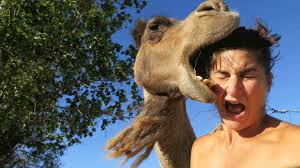板橋區文化路段421巷11弄1號 (陽光甜味咖啡館)
新埔捷運站1號出口 旁邊7-11巷子進入20公尺 看到夏朵美髮院 左轉 PM7:00--9:30
歡迎您加入 英文/知識/交友 文章請點選欄位
週二(11/22)1.人人都有一副面具2.「自拍」成為了「自殺」
上午9:06
No comments
人人都有一副面具
The Masks we Wear! by Laurie
One of my thoughts around this theme is that we wear masks all the time as we try to be – or hope to be – someone other’s will like and appreciate. You know the masks I’m talking about: the ‘family’ masks we wear to try and please others in the family; the ‘relationship’ masks we wear to our significant other so that they won’t ‘leave us’; the ‘work’ masks we wear when we dislike our job/co-worker/boss etc. We find all sorts of different ways to wear a mask believing that our masked self is who people want to see. The problem is if we wear a mask long enough we get stuck in it. We can’t be authentic by dropping the masks to the people we know well and maybe even love because how do we change now after having worn the mask so long? Or we may forget our authentic self completely and just keep wearing the masks!
Another thought I had about masks as we celebrated Halloween is that people can often be more authentic when they dress up and participate in Halloween. We also do this with alcohol and vacations. Why is it we can feel comfortable being our authentic selves with some makeup to hide who we are, with some alcohol to give us courage to BE who we are, or with a vacation where we can experiment with pushing ourselves out of our comfort zones into our authentic selves or is it just because we are in a different place where no one knows us so we are able to BE our authentic selves?
Fear is the problem that we try to resolve through masks and it is courage that we require to free us from our masks or fear. Fear definitely is the culprit that helps us create our masks. We are afraid that we aren’t enough as we are and that we must be nicer, friendlier, and more aloof to hide our insecurities. And ultimately we are trying to be happier to please other people so that they will ‘like’ us and not ‘leave’ us!
I believe what happens is that we are unconsciously driven by our fears and we eventually walk around like sleepwalkers, unaware that we pretend to be someone else. As children we were naturally authentic and often didn’t care about what others thought of us but this fear crept in as we were disciplined and punished for BEing who we are. It became so ingrained in us to BE this person who would win approval that we kept on the masks that won approval and this ‘stuck’ on us and we became the masked person and forgot our authentic self.
Q:
Why people wear masks when they dislike their job/co-worker/boss?
Do you sometimes wear masks and try to please others?
Why is it we can feel comfortable being our authentic selves with some makeup to hide who we are?
Have you ever pretend to be interested in others?
What are the reasons that why people lie?
How can we find “authentic” friends?
Do you worry that others will judge you?

「自拍」成為了「自殺」
Dramatic rise in 'selfie' deaths worldwide – with over half in India By Mark Piggott ibtimes.co.uk
The number of people who have died while attempting a "selfie" on their mobile has steadily soared from 15 in 2014 to 39 in 2015, and 73 in the first eight months of 2016 alone.
Altogether at least 127 people have died around the world in the last two years trying to take selfies – often in dangerous locations such as high buildings or in water. India accounts for over half of all selfie-related deaths.
Now Hemank Lamba, a PHD student at Pittsburgh's Carnegie Mellon University, and a group of friends have analysed each recorded selfie death in an attempt to find out who is at risk and where. They are hoping to potentially develop an app which will warn risk-takers of the dangers.
The app can identify when the taker is in a risky location, such as the edge of a mountain or on train tracks, and send a warning. So far the app has analysed some 3,000 selfies and correctly identified dangers 70% of the time.
Lamba's study differentiated between photographs taken which showed the moment of death – such as a bomb attack or car crash – and those that would have been avoided if no-one had been taking a selfie. The study found that men are three times more likely to die than women, even though women take far more selfies.
The most at risk age group were people between 20 and 24, which accounted for 45 deaths. There were 41 deaths among under 20s and and 17 victims were aged 30 or more.
India had by far the greatest number of selfie deaths - or "killfies" as Lamba's team dubbed them in their study. Some 76 people died in India, including several who drowned in the Arabian Sea off Mumbai, prompting the police to declare 16 areas of the city "no selfie zones."
The study also made a connection between the rising number of deaths and narcissism. "Since the advent of online social networks, people have developed an insatiable urge to be the most 'popular' in their community," the report noted. "In medicinal terms, this has been long compared to forms of narcissism and in relation to selfies, termed as Selfitis."
Q:
Why people like 'selfie?
Why ''selfie deaths rise worldwide?
What is the real link between selfies and narcissism?
Is narcissism bad, and why?
Why do people like to take risks?
What are the advantages of using app functions?
What are the ways to prevent and avoid accidents when taking selfie?
自拍喪命高於被鯊魚攻擊 印度人數高居全球! 記者戴榕萱/綜合報導ETtoday 新聞雲
自拍一詞源自2002年的一個澳洲線上論壇中,不過近年來,因為自拍的盛行,卻讓民眾不斷挑戰與眾不同的畫面,「自拍」成為了「自殺」。
攝影、多媒體設備發展至今,生活中的隨手攝影或是自拍照,更是現代在網路社群中更常見的記錄方式,自拍(selfie)一詞首度出現,是在2002年的一個澳洲線上論壇中,直到2012年開始被媒體廣泛應用,更在2014年的,時代雜誌(TIME Magazine)把「自拍神器」評為當年度的最佳發明。
據美國卡內基美隆大學(Carnegie Mellon University)與印度理工學院德里分校的研究指出,眾多民眾渴望拍下最酷的自拍,並獲得社群網路中的「讚」數,慘遭死神召喚的民眾不算少數。學者指出近兩年來(2014~2016年),共有127件,而印度死亡人數更是位居第一,已有76名自拍者在印度泰姬瑪哈陵,或處於懸崖上等危險地域自拍而喪命。研究團隊更說自拍帶來的災難更是比被鯊魚攻擊的人數來得高;雖然網路社交媒體可以讓人隨時獲得新知,但無謂的追求讚數而有錯誤的價值觀念,賠上性命的自拍,這也是過去從未想過的人為災難;記者在此提醒民眾,自拍以前請依照當時地形謹慎思考,以免後悔莫及。
訂閱:
張貼留言 (Atom)


















0 意見:
張貼留言